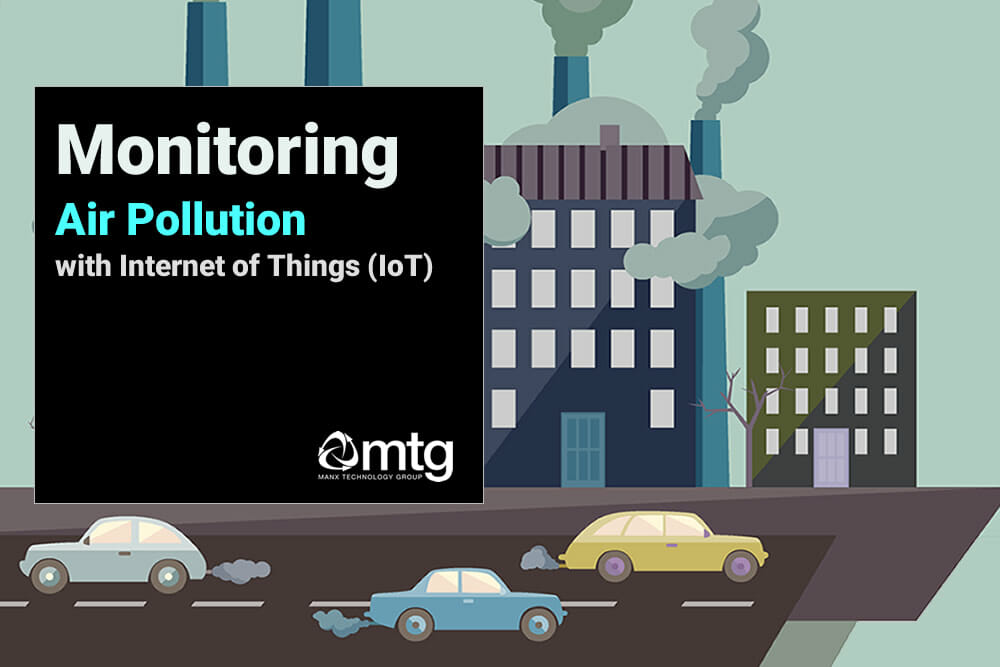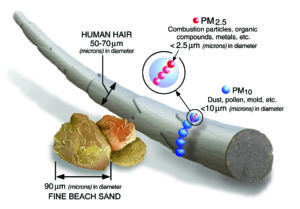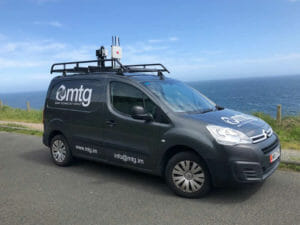
Location marketing tends to focus on employment opportunities, local scenery, commute times, broadband speeds and public service performance – however, there is a growing interest and awareness of the importance of air quality and pollution on health. With the emergence of air quality monitoring systems and IoT technologies, the availability of data relating to air quality and pollutants is ever-increasing.
Health Risks

The health risks of air pollution (particulates and NO2) are well documented. Higher particulate counts are linked to increased mortality rates associated with cardiac and respiratory illness. Similar reports cite a correlation between asthma, stunted lungs, low birth weight in babies and premature deaths. Given these stark facts, it is no surprise that air pollution is a critical factor in selecting an area to live in, or base your business, and many predict it will begin to impact property prices and desirability indexes.
The non-profit advertising group Central Office of Public Interest (COPI) has been running a campaign to highlight the risks of air pollution on public health.
Mark Hayward, CEO of NAEA Property Mark, the estate agents trade body, acknowledges that air quality is becoming an essential factor in the home-buying process:
People are spending longer than ever in their homes, and as such they’re becoming more particular about where they buy. Air pollution levels will increasingly play an important part in the decision-making process, particularly those housebuyers who have a young family to raise.
Air Pollution where you live
Air Quality monitoring with the Internet of Things (IoT) has dramatically increased the amount, coverage and frequency of air quality monitoring throughout the UK. Initiatives such as Air Quality Scotland, AddressPollution.org and AQICN publish data and real-time maps that provide indications of air pollution in the UK. These websites are useful resources and give evidence of quality, but may not be able to forecast the air quality in your street or estate accurately.
Hyperlocal Measurements
To provide meaningful and high-accuracy air quality data in localities throughout the UK; air sampling needs to move from fixed monitoring stations to hyper-local solutions.
Hyper-Local air quality monitoring moves away from one or two monitoring stations in a city to hundreds of IoT sensor systems deployed throughout the entire area. Hyper-Local air quality monitoring is made possible using technologies such as IoT that are both inexpensive, flexible and capable of handling a variety of communication networks. IoT systems can monitor hundreds of different environmental factors, but we find the most common for air quality include particulates, NO2 and CO2.
Mobile Air Quality Monitoring

Installing IoT air quality monitoring sensors on vehicles is another way of achieving hyper-local pollution data. Vehicles such as bin lorries, buses and council vehicles regularly drive throughout most urban and residential areas. Installing IoT air quality stations on cars along with GPS systems – is another way to achieve hyper-local air quality data without having to invest hundreds of sensors in fixed locations. MTG has trialled mobile hyperlocal air quality monitoring tech trials in the Isle of Man – delivering hyper-local measurements in a cost-effective manner.
Policy as a Solution
Many organisations are encouraging people to lobby their MPs and councillors, asking that they request more cycle paths and charging points for EV (electric vehicles). Forward-thinking policies are one way to encourage positive change. One example of such a policy is how the UK Government is consulting on whether Building Regulations should mandate the provision of EV charging points in all new homes.
What next?
Estate agents and online property sales websites will inevitably begin incorporating air quality data into their listings. Greater awareness of the risks and the state of air pollution will undoubtedly influence buyer behaviour, which will inevitably impact property prices.
Governments, councils and planning authorities should incorporate air quality measurements into their strategic plans and decisions. Knowingly granting or encouraging development in areas with poor air quality (or the risk of) is arguably negligent or irresponsible.
It is not all bad news – many will benefit from the greater awareness of air quality and its impact:
- Rural areas of the UK with high-quality air and excellent transport links will be sought-after locations for health-conscious buyers.
- Towns and villages that have invested in or developed policies for pedestrianisation, cycling lanes and similar schemes will see dividends when these schemes improve air quality.
- Cities and councils that have begun implementing low-emission zones and other restrictions will be vindicated as their policies reverse the trends associated with toxic air. London was one of the first to introduce an ultra-low emissions zone to penalise polluting vehicles.
- Greater awareness will reinvigorate initiatives to tackle air pollution resulting from traffic and industry.
How can we help?
MTG provides a range of Internet of Things (IoT) based air quality monitoring solutions. With an extensive list of gases and pollutants supported, we can help implement proofs-of-concept (POC) and hyper-local air quality monitoring for towns, councils and cities. Libelium One, AQS and Plug & Sense Smart Environment systems can be easily deployed, taking measurements and transmitting their data back to the cloud using 4G or LoRA technologies.
If you would like to learn more about our mobile air quality monitoring, IoT solutions or Smart Environment solutions – speak to our sales team by calling +44 1624 777837, e-mailing sales@mtg.im or submitting the contact form on our website.
Further Reading
- Libelium Plug & Sense – Smart Enviroment
- Using IoT to monitor air quality near schools
- IoT Test vehicles in the Isle of Man
- Health Risks – Poor air quality and particulates
- Mobile air quality monitoring with IoT
- Internet of Things (IoT) and ISO 37122 – A perfect partnership
More information
If you would like to learn more about our products and services, request pricing, or discuss a project requirement - you can MTG using the details below. Alternatively, you can e-mail sales@mtg.im for more information.

